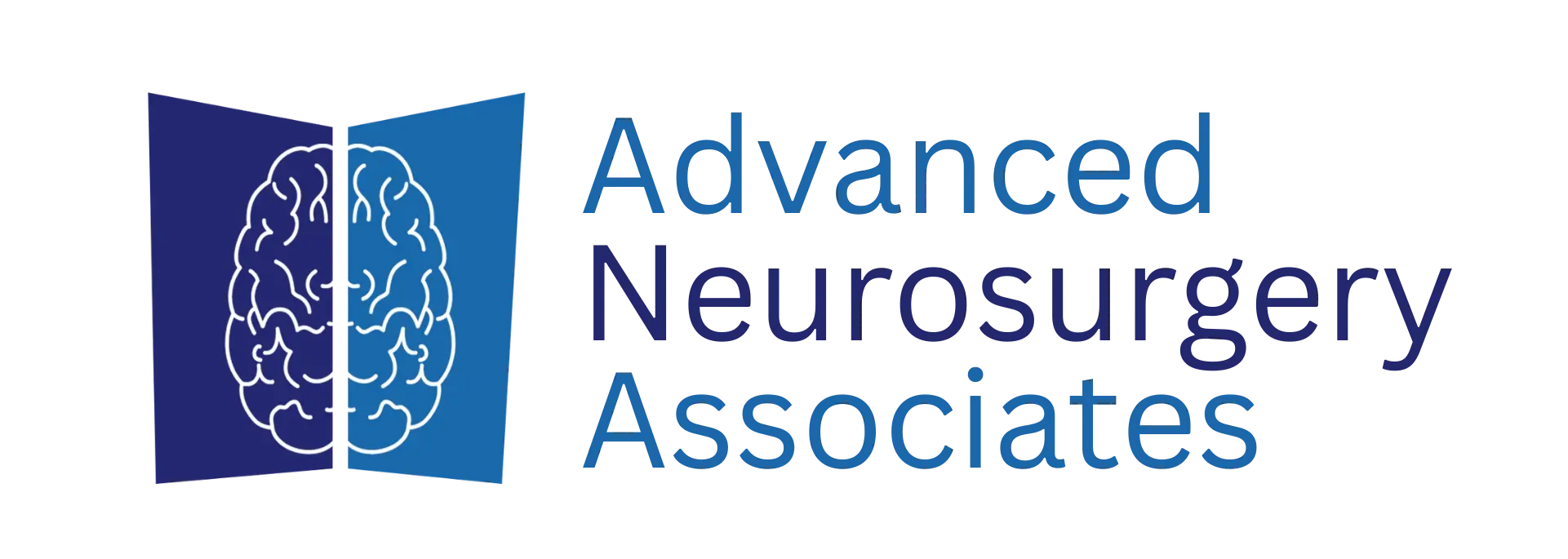Brain tumors are complex and varied, affecting thousands each year. Understanding them is crucial for early detection and treatment.
These tumors can be benign or malignant, impacting the brain’s function. Symptoms often depend on the tumor’s size and location.
Common signs include headaches, seizures, and vision changes. Early diagnosis can significantly improve treatment outcomes.
Treatment options range from surgery to radiation and chemotherapy. Each approach aims to manage the tumor while preserving brain function.
This article explores the types of brain tumors, their symptoms, and available treatments, including brain tumor surgery.
At Advanced Neurosurgery Associates, patients receive expert care and access to advanced diagnostic and surgical options for brain tumor management.

What Is a Brain Tumor?
A brain tumor is an abnormal growth of cells in the brain. These cells multiply uncontrollably, forming a mass that affects brain function.
Tumors can be noncancerous (benign) or cancerous (malignant), each with different implications for health.
Key characteristics include:
● Varying growth rates
● Ability to invade surrounding tissues
● Potential to recur after treatment
Both types pose challenges due to their location in the skull, which restricts space. As they expand, they can press on vital brain areas, causing symptoms and complications.
Primary vs. Secondary Brain Tumors
Brain tumors are classified into primary and secondary categories. Primary tumors originate directly in the brain. They develop from various cell types and include gliomas and meningiomas.
Secondary brain tumors are metastatic, meaning they spread from cancer in another body part. They are the most common type of brain tumor in adults.
Primary Brain Tumors:
● Originate in brain tissue
● Can be benign or malignant
Secondary Brain Tumors:
● Spread from other cancer sites
● Always malignant
Consulting a skilled Brain Tumor Surgeon NJ can help determine the right treatment approach based on the tumor type and location.
Common Types of Brain Tumors
Brain tumors vary widely, with over 120 types identified. Each type arises from different brain or spinal tissues. Among these, gliomas, meningiomas, and pituitary adenomas are the most common.
Gliomas account for the majority of primary brain tumors. They originate from glial cells, which support and protect neurons. Meningiomas, on the other hand, form from the meninges, the brain’s protective layers. Most meningiomas are benign but can cause problems by compressing surrounding tissues.
Pituitary adenomas develop in the pituitary gland. Although mostly benign, they can lead to hormonal imbalances. Other less common types include schwannomas and medulloblastomas.
Key Types of Brain Tumors:
● Gliomas
● Meningiomas
● Pituitary adenomas
● Schwannomas
● Medulloblastomas
Gliomas
Gliomas arise from glial cells, the brain’s supportive network. They include astrocytomas, oligodendrogliomas, and ependymomas. Gliomas vary in aggressiveness. Astrocytomas are the most common form and can be benign or malignant.
Types of Gliomas:
● Astrocytomas
● Oligodendrogliomas
● Ependymomas
Some gliomas grow rapidly, demanding swift treatment. Others progress slowly and are monitored closely. Treatments aim to reduce symptoms and impede tumor growth.
Meningiomas
Meningiomas develop from the meninges. While typically benign, they can cause complications. Their slow growth often leads to late detection, but early intervention can prevent serious outcomes.
These tumors can compress brain tissue, affecting function. Surgery and monitoring are common treatment options, depending on the tumor size and symptoms.
The team at Advanced Neurosurgery Associates provides personalized surgical care for patients diagnosed with meningiomas, focusing on safety and precision.

Pituitary Adenomas and Other Types
Pituitary adenomas often affect hormone levels, leading to diverse symptoms. They grow in the pituitary gland but rarely metastasize. Despite being non-cancerous, their hormonal effects may necessitate treatment.
Other types include schwannomas and medulloblastomas. Schwannomas form on nerve sheaths and are often benign. Medulloblastomas are less common, usually found in children.
Other Brain Tumors:
● Schwannomas
● Medulloblastomas
Treatment depends on symptoms and tumor location, with surgery and medication being common approaches. Understanding these types aids in selecting appropriate care strategies.
Brain Tumor Symptoms
Brain tumor symptoms can vary greatly. They depend on the tumor’s size, location, and type. Symptoms may be subtle or severe, affecting daily life.
Common signs include persistent headaches, often worsening over time. Seizures are another frequent symptom. They can occur even if someone has never had them before. Vision changes, such as blurred or double vision, are also possible. Additionally, personality or cognitive changes might arise, affecting memory or concentration.
Common Symptoms of Brain Tumors:
● Headaches
● Seizures
● Vision problems
● Cognitive and personality changes
Recognizing these symptoms early can lead to timely diagnosis and treatment, potentially improving outcomes. Always consult a healthcare provider if unusual symptoms appear.
Diagnosing a Brain Tumor
Diagnosing a brain tumor requires precise imaging and tests. Doctors typically recommend an MRI or CT scan to visualize the brain. These scans help identify abnormalities and guide further investigation.
A neurological exam assesses brain function, while a biopsy may be needed for a definitive diagnosis. This involves analyzing tumor tissue for cancerous cells.
Key Diagnostic Tools:
● MRI or CT scan
● Neurological examination
● Biopsy for tissue analysis
Early detection through these methods can lead to better treatment strategies. Always follow up with healthcare professionals for comprehensive diagnostic procedures.
Treatment Options for Brain Tumors
Treating brain tumors involves various approaches depending on the type and location. Surgery is often the first step, aiming to remove the tumor. When surgery isn’t possible, other methods come into play.
Radiation therapy targets and kills tumor cells with high-energy beams. It’s a common choice when complete surgical removal is difficult. Chemotherapy uses drugs to attack cancer cells, often in combination with other treatments.
Targeted therapy focuses on specific molecules, offering a personalized approach. Ongoing research continues to enhance these methods, improving patient outcomes.
Key Treatment Options:
● Surgery
● Radiation therapy
● Chemotherapy
● Targeted therapy
Each treatment plan is tailored to the patient’s needs, focusing on both effectiveness and maintaining quality of life.
Brain Tumor Surgery
Brain tumor surgery aims to excise the tumor while preserving brain function. Advances in minimally invasive techniques have improved safety and precision. Intraoperative imaging further aids surgeons in navigating delicate brain areas.
Despite advancements, some tumors are deemed inoperable due to location. Surgeons weigh risks and benefits carefully.
Advantages of Modern Surgery:
● Minimally invasive techniques
● Enhanced precision with imaging
● Balances risk with functional outcomes
Consulting a qualified Brain Tumor Specialist ensures expert surgical care and the most advanced treatment options available.
Living With a Brain Tumor: Prognosis and Support
Living with a brain tumor can present diverse challenges. Prognosis varies greatly, depending on tumor type, location, and treatment success. Some patients experience significant recovery, while others may face ongoing health issues.
Components of Supportive Care:
● Physical therapy for rehabilitation
● Counseling for emotional well-being
● Nutritional guidance for overall health
Conclusion
Brain tumors are complex conditions that require timely diagnosis and specialized care. Understanding the type, location, and potential symptoms of a tumor can guide patients toward the most effective treatment options, from surgery to radiation and medication. Living with a brain tumor involves not only medical management but also emotional and rehabilitative support to maintain quality of life.
For anyone seeking expert care for brain or spine conditions, consulting a skilled neurosurgeon Rutherford NJ can make a significant difference. These specialists provide personalized treatment plans, advanced surgical techniques, and comprehensive support, ensuring the best outcomes for both brain and spine health.





